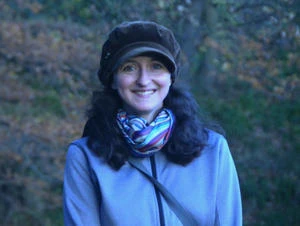
Connect
About
*Buyout Leave - Autumn Term 2025*
Dina Gusejnova (PhD in History, University of Cambridge) is Associate Professor in International History at LSE. Her research interests include modern European political, intellectual and cultural history of transitional periods, especially the revolutions of 1918-20 and the two World Wars. She is currently working on a cultural and intellectual history of forced displacement and internment in the Second World War.
Dina Gusejnova’s first major research project dealt with ideas of European integration after the First World War. In European Elites and Ideas of Empire, 1917-1957 (Cambridge University Press, 2016, pbk 2018), she reconstructs the intellectual lifeworld of three fading empires, Germany, Austria-Hungary and Russia, through the eyes of a group of German-speaking authors whose social lives traversed the three societies. The book maps out how ideas of Europe emerged in response to the decline of the continental empires.
In her subsequent research, Dina has concentrated on connections between cosmopolitan thought and war. In this context, she has recently edited Cosmopolitanism in Conflict: Imperial Encounters from the Seven Years' War to the Cold War (Palgrave Macmillan, 2018), which was the outcome of an international collaboration involving authors from the UK, the United States, Turkey and Russia. Revisiting the cultural history of global conflicts from the Seven Years’ War to the Cold War, they show how cosmopolitan ideas have been implicated not only in practices and legal justifications of war but also in personal experiences of conflict.
Further research has centred on German intellectual history in global contexts, as well as the history of critical and social theory. Her articles in this field, including work on authors such as Ernst Cassirer, Oswald Spengler, Theodor W. Adorno, and Max Weber, appeared in the Journal of European Studies, Cultural History, Comparativ, the Zeitschrift für Weltgeschichte (Journal of World History), Novoe Literaturnoe Obozrenie, and European Journal of Social Theory, and with Oxford University Press, Bloomsbury Academic and the Presses Universitaires Septentrion.
More recently, Dina Gusejnova has been thinking about history in a more diverse range of media, focusing on forms ranging from dialogue and conversation to video essays. She is the co-host of the podcast International History Now, which explores topical issues from a historical perspective with one or two invited guests. She has also contributed a feature to BBC Radio 4, and made independent documentary films in an essay format. One film explores about European identity and colonial legacies, Khadija’s Crown (2022), another film, called Rosenöl und Deutscher Geist (2020), looks at the impact of 1933 on the discipline of intellectual history, and most recently she has completed a documentary essay about the impossibility of telling the history of the 20th century in the Russian state historical museum, called The Last Room (2021).
Biography
Dr Gusejnova holds a BA, MPhil and PhD from the University of Cambridge, where she taught the history of political thought. She was also awarded a European Doctorate from the Marie Curie consortium supported by the European Commission. After receiving a Harper-Schmidt postdoctoral fellowship from the Society of Fellows, she taught social and political theory in Chicago as Collegiate Assistant Professor. Dr Gusejnova has also held postdoctoral awards from the AHRC, the DAAD and the Leverhulme Trust. Having taught at UCL and
Queen Mary University of London, in 2015 she took up a lectureship at the University of Sheffield. Dr Gusejnova joined the LSE in September 2019.
She is a Fellow of the Royal Historical Society and the Higher Education Academy, as well as an Honorary Research Associate of the Centre for Transnational History at UCL and the History Department at the University of Sheffield. She serves as Historical advisor to the ‘Imagining History’ programme for young writers led by the Young Walter Scott Prize for Historical Fiction. Dina is one of the co-conveners of the IHR Seminar in the History of Political Ideas, and a co-PI on two CIVICA research projects, Protecting Academics at Risk: A Survey of European and EU Practice (PROAC), and Democracy and Its Discontents. A Historical Examination of the Current Predicament of Democracy (DEMOS). She is one of the co-founders of the University of New Europe, a collective of academics who seek to facilitate new ways of researching and teaching European history and politics from a global perspective involving academics at risk from war and political persecution.
VIDEO: Watch Dr Dina Guesjnova talk about her historical research on Temporary States.
How did the idea of the state change over the course of the 20th century? And what did people do with these changing ideas?
Expertise
Modern European History, Intellectual and Cultural History, History and Social Theory